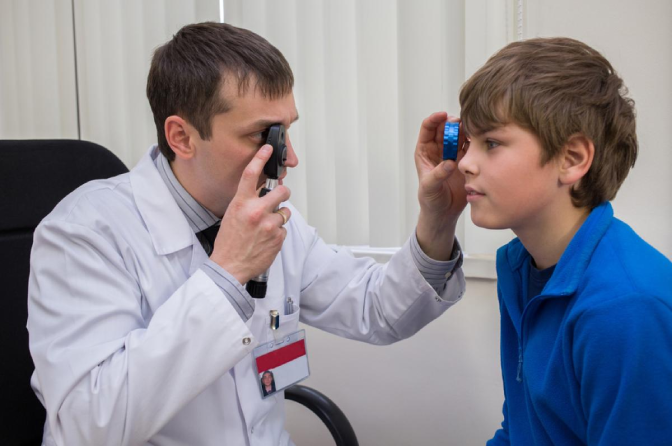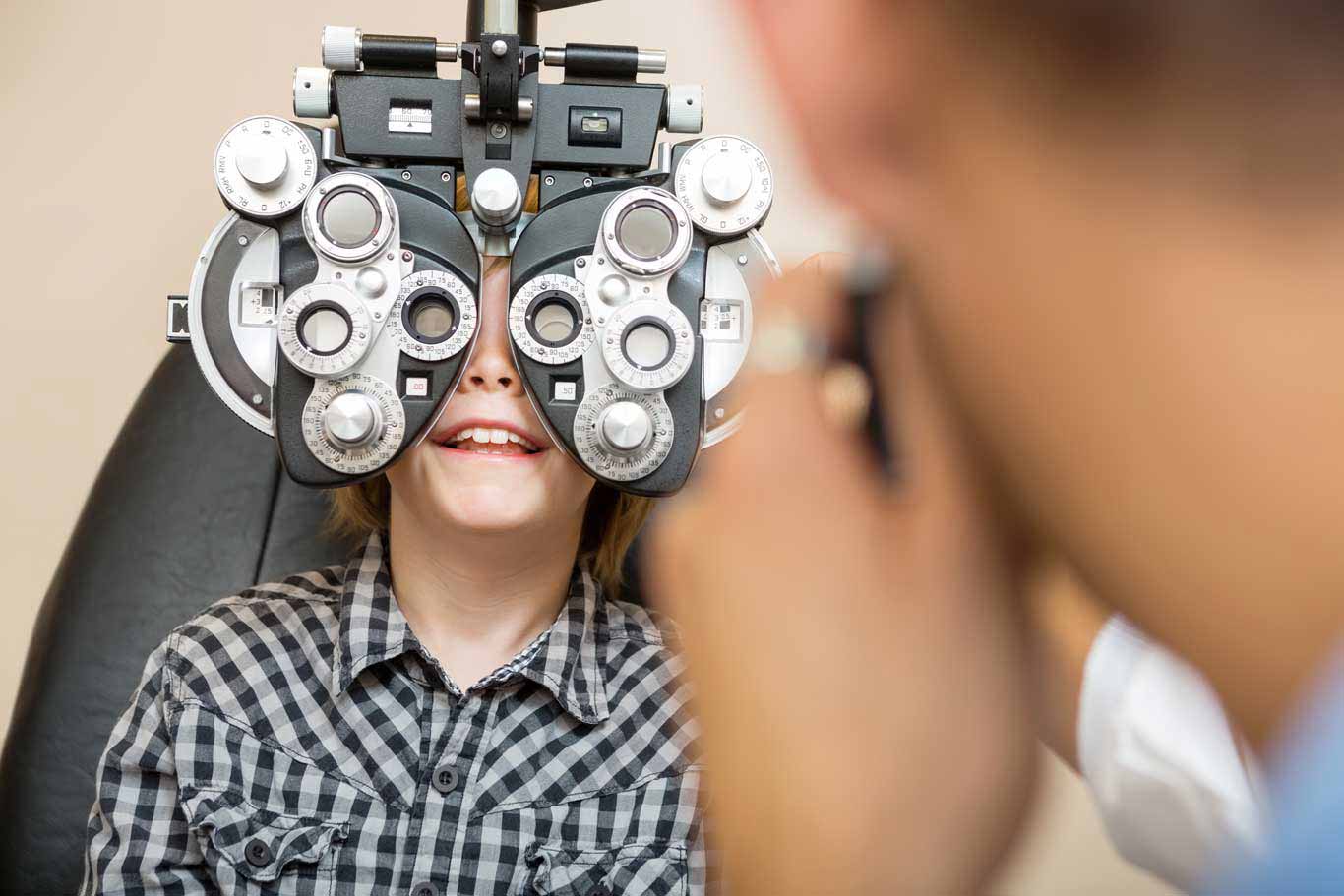The Importance of Regular Eye Exams: Insights From an Experienced Eye Physician
Normal eye exams offer as an essential element of medical care that extends past mere vision correction. A knowledgeable eye physician can provide insights right into exactly how these evaluations not just find common eye problems but additionally reveal underlying health and wellness issues that might or else go unnoticed.
Advantages of Regular Eye Examinations
Although lots of people may forget the value of regular eye examinations, these analyses play a vital role in preserving total health and wellness and health. Regular eye evaluations offer not just to evaluate vision however likewise to detect early indications of systemic wellness issues, including diabetes mellitus and hypertension. By determining these problems at their beginning, people can obtain timely interventions, significantly enhancing lasting results.
In addition, eye exams can help in checking existing health and wellness issues, ensuring that any modifications in vision or eye health are quickly resolved (optometrist). The assessments permit individualized referrals pertaining to glasses, way of living changes, and safety actions versus possible eye stress or damages
Beyond physical health and wellness, the benefits of routine eye examinations extend to improving quality of life. Inevitably, prioritizing eye exams cultivates a positive approach to wellness administration, encouraging people to take charge of their health.
Common Eye Conditions Detected
Normal eye examinations are instrumental in detecting a range of common eye problems that can considerably influence vision and general health. Amongst the most widespread conditions determined during these exams are refractive errors, consisting of myopia (nearsightedness), hyperopia (farsightedness), and astigmatism. These conditions often materialize as obscured vision and can be easily fixed with prescription glasses or contact lenses.
An additional common problem is glaucoma, a team of eye conditions that harm the optic nerve, frequently linked to increased intraocular pressure. Early detection is critical as it can prevent permanent vision loss.
Age-related macular degeneration (AMD) is another substantial condition that influences main vision, particularly in individuals over 50. Lastly, diabetic person retinopathy, a complication of diabetic issues, can cause extreme vision problems if not checked consistently. Through detailed eye examinations, these problems can be determined early, enabling prompt monitoring and treatment to protect vision and improve lifestyle.
Value of Early Detection
Very early discovery of eye problems plays a crucial function in preserving vision and protecting against substantial health and wellness problems. Many eye conditions, such as glaucoma, diabetic retinopathy, and age-related macular deterioration, can proceed silently without recognizable signs and symptoms in their beginning. By the time signs and symptoms materialize, irreversible damages may have occurred, bring about long-term vision loss.
Regular eye tests help with early medical diagnosis, enabling for timely treatment and treatment. For example, treating raised intraocular pressure can stop the onset of glaucoma, while taking care of blood glucose degrees can dramatically minimize the risk of diabetic retinopathy. Additionally, conditions like cataracts can be effectively handled with medical intervention when recognized early.

Exactly How Usually Should You Visit?
Figuring out the frequency of eye exams is important for maintaining optimal eye health and vision. The general recommendation for adults is to have a comprehensive eye test every one to 2 years, depending on private danger factors and age.
Individuals with details danger elements, such as a family background of eye illness, diabetic issues, or existing vision problems, might need even more regular assessments. Children need to have their very first eye exam at 6 months of age, followed by added examinations at age three and prior to entering college. Routine check-ups throughout youth are vital as vision can change swiftly during developmental years.
Inevitably, the frequency of gos to need to be customized to each individual's circumstances, consisting of lifestyle, job-related hazards, and any kind of pre-existing eye conditions. Consulting with an eye treatment professional can give individualized recommendations, making sure that your eye health is frequently kept track of and preserved.
Tips for Your Eye Exam
Getting ready for your eye test can enhance the efficiency of the visit and make sure a comprehensive analysis of your eye health. To maximize your time with the eye medical professional, it is crucial to collect appropriate details before your appointment. Begin by assembling a list of any type of medicines you are presently taking, including non-prescription drugs and supplements, as these can impact eye health and wellness.
In addition, document any type of signs you have actually experienced, such as obscured vision, pain, or More Bonuses headaches. This info will certainly aid your optometrist in identifying prospective problems. If you put on glasses or call lenses, bring them along, even if you don't wear them consistently. This will help the doctor evaluate any type of modifications in your vision.
It is additionally beneficial to have a family history of eye conditions handy, as hereditary elements can add to your eye health and wellness. Lastly, think about scheduling your exam for a time when you are much less hurried, enabling you to ask concerns and discuss your issues thoroughly. By preparing sufficiently, you guarantee that your eye exam is productive which your ophthalmologist has all the required information to give the most effective treatment possible.

Conclusion
Normal eye examinations play a crucial duty in preserving both vision and overall wellness. They help with the very early detection of various eye problems and systemic issues, enabling timely treatment. The recommendations for frequency highlight the value of positive care. Carrying out basic preparatory tips can boost the evaluation experience. Eventually, focusing on detailed eye evaluations contributes dramatically to the conservation of vision and the renovation of lifestyle, underscoring the need of routine eye care in he has a good point preventive medical care approaches.
Routine eye exams are crucial in finding a variety of typical eye problems that can dramatically impact vision and overall health.Figuring out the regularity of eye tests is essential for maintaining optimum eye health and vision.Preparing for your eye test can enhance the effectiveness of the go to and ensure an extensive examination of your eye health and wellness (optometrist). By preparing effectively, you make certain that your eye test is effective and that your eye medical professional has all the essential details to give the ideal treatment feasible
Ultimately, prioritizing have a peek at these guys comprehensive eye evaluations adds dramatically to the conservation of vision and the enhancement of high quality of life, underlining the necessity of regular eye treatment in preventive healthcare approaches.